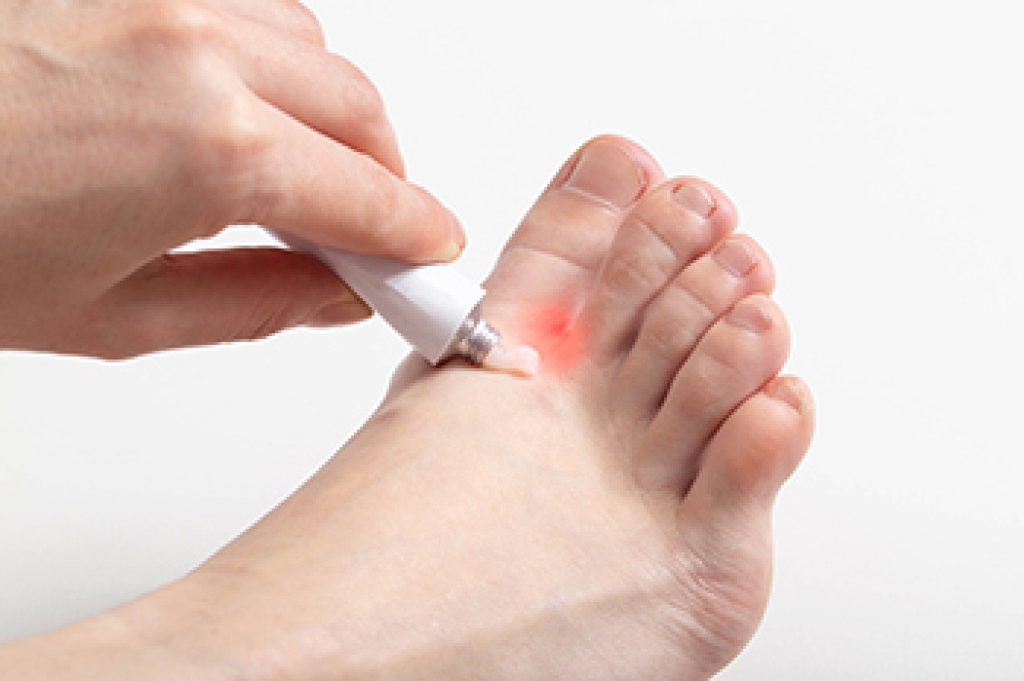
Athlete's foot, known medically as tinea pedis, is a common fungal infection that affects the skin of the feet. It thrives in warm, moist environments, such as locker rooms, swimming pools, and communal showers. This condition is caused by various types of fungi, primarily belonging to the dermatophyte group. Symptoms of athlete's foot include itching, burning, and stinging sensations, frequently between the toes or on the soles of the feet. As the infection progresses, the skin may become red, cracked, and blistered. In severe cases, it can lead to the development of painful ulcers or secondary bacterial infections. Athlete's foot is extremely contagious and can spread through direct contact with infected surfaces or by sharing contaminated items like towels or shoes. Practicing good foot hygiene, wearing breathable footwear, and keeping feet dry can help prevent the occurrence of this bothersome condition. If you have developed this ailment, it is suggested that you visit a podiatrist who will often prescribe medication for relief and healing.
Athlete’s foot is an inconvenient condition that can be easily reduced with the proper treatment. If you have any concerns about your feet and ankles, contact one of our podiatrists from Suncoast Podiatry Associates. Our doctors will treat your foot and ankle needs.
Athlete’s Foot: The Sole Story
Athlete's foot, also known as tinea pedis, can be an extremely contagious foot infection. It is commonly contracted in public changing areas and bathrooms, dormitory style living quarters, around locker rooms and public swimming pools, or anywhere your feet often come into contact with other people.
Solutions to Combat Athlete’s Foot
- Hydrate your feet by using lotion
- Exfoliate
- Buff off nails
- Use of anti-fungal products
- Examine your feet and visit your doctor if any suspicious blisters or cuts develop
Athlete’s foot can cause many irritating symptoms such as dry and flaking skin, itching, and redness. Some more severe symptoms can include bleeding and cracked skin, intense itching and burning, and even pain when walking. In the worst cases, Athlete’s foot can cause blistering as well. Speak to your podiatrist for a better understanding of the different causes of Athlete’s foot, as well as help in determining which treatment options are best for you.
If you have any questions please feel free to contact our office located in Ocala, FL . We offer the newest diagnostic and treatment technologies for all your foot and ankle needs.